Social Good Award
Clemenger BBDO 22 Assembly 58 Voice of Racism
-
Pou Auaha / Creative Directors
Brigid Alkema, Emily Beautrais
-
Ringatoi Matua / Design Director
Matt Von Trott
-
Ngā Kaimahi / Team Members
Meng Foon, Helen Isbister, Gareth Seymour, Andre Afamasaga, Shaymaa Arif, Lewis Hudson, Leigh Graham, Ryan Mearns, Kerri Kruse, Frances Cooke, Christina Hazard, Linda Major, Bethany Omeri, Robbie Allen, Tim Freeman, Emma Brown, Paul Stent, Jake Firman, Matt Von Trott, Matt Wilson, Elliot Stronge, Josh Fourt-Wells, Geoff Kirk Smith, Clare Bone, Taika Waititi, Matt Noonan, Cam Ballantyne -
Client
New Zealand Human Rights Commission
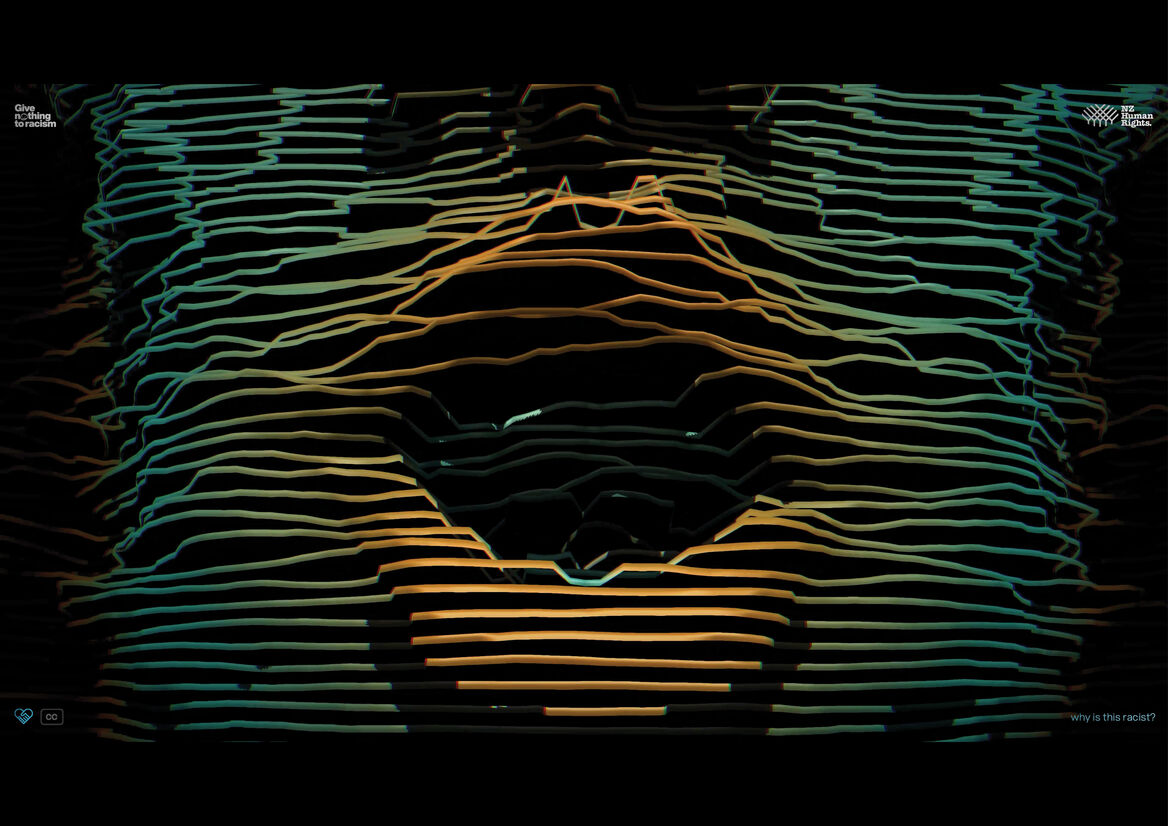
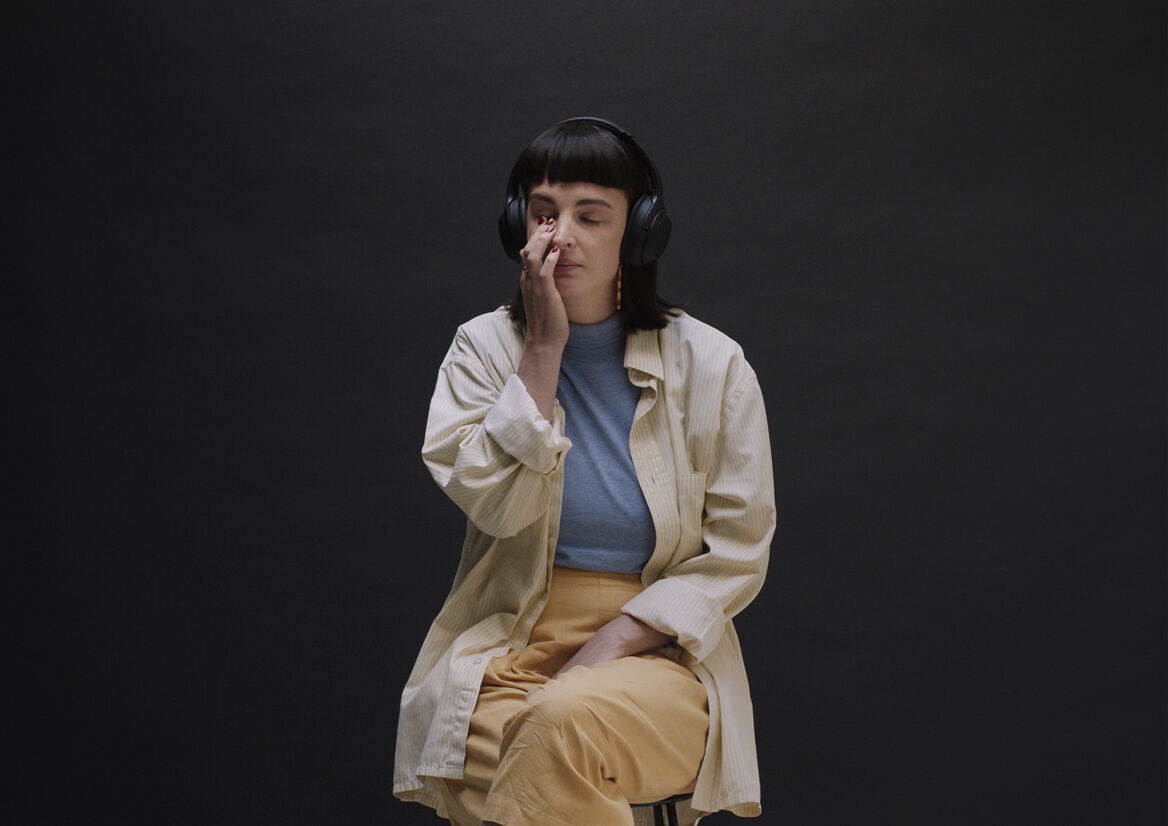
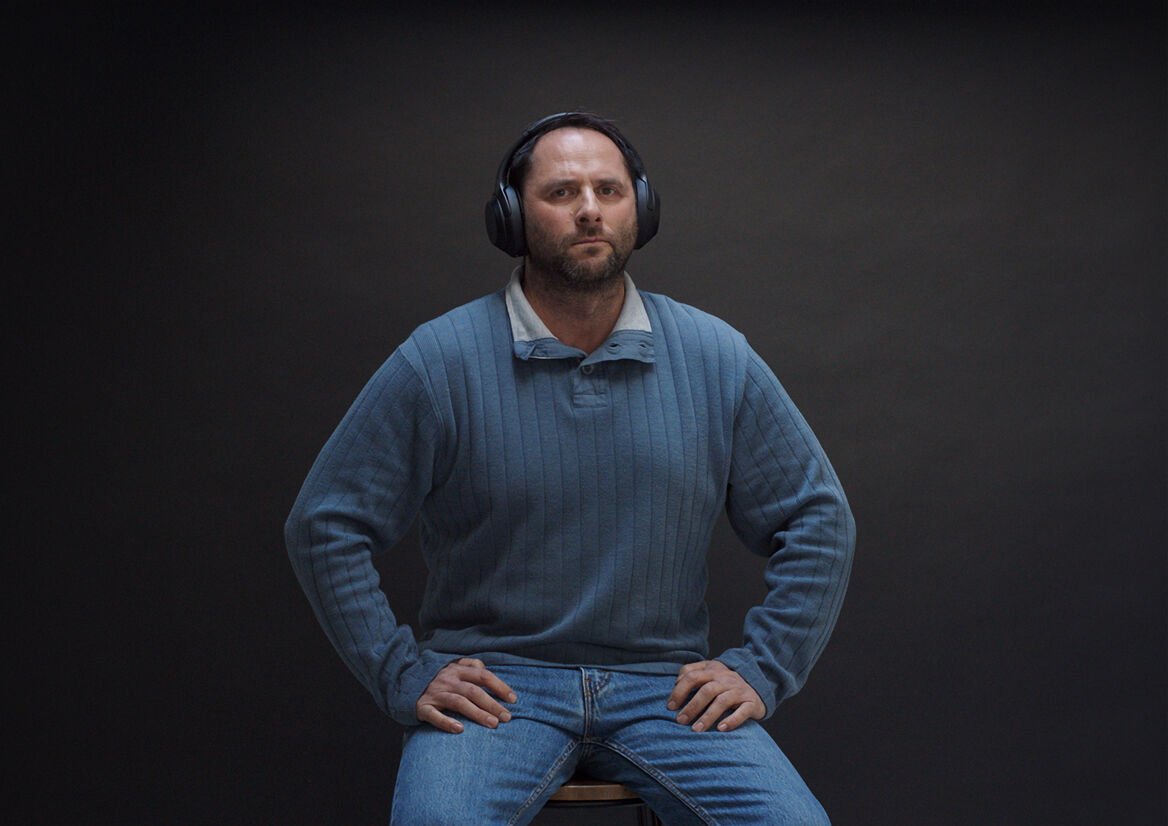
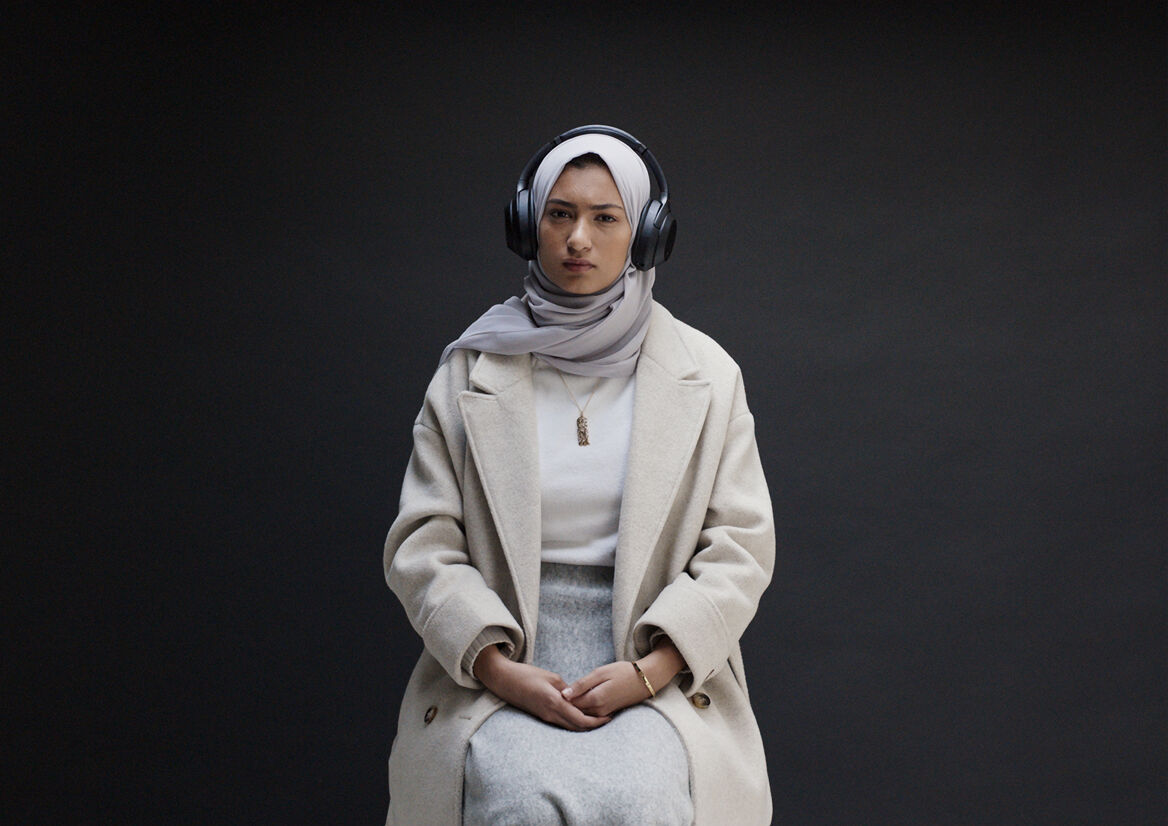
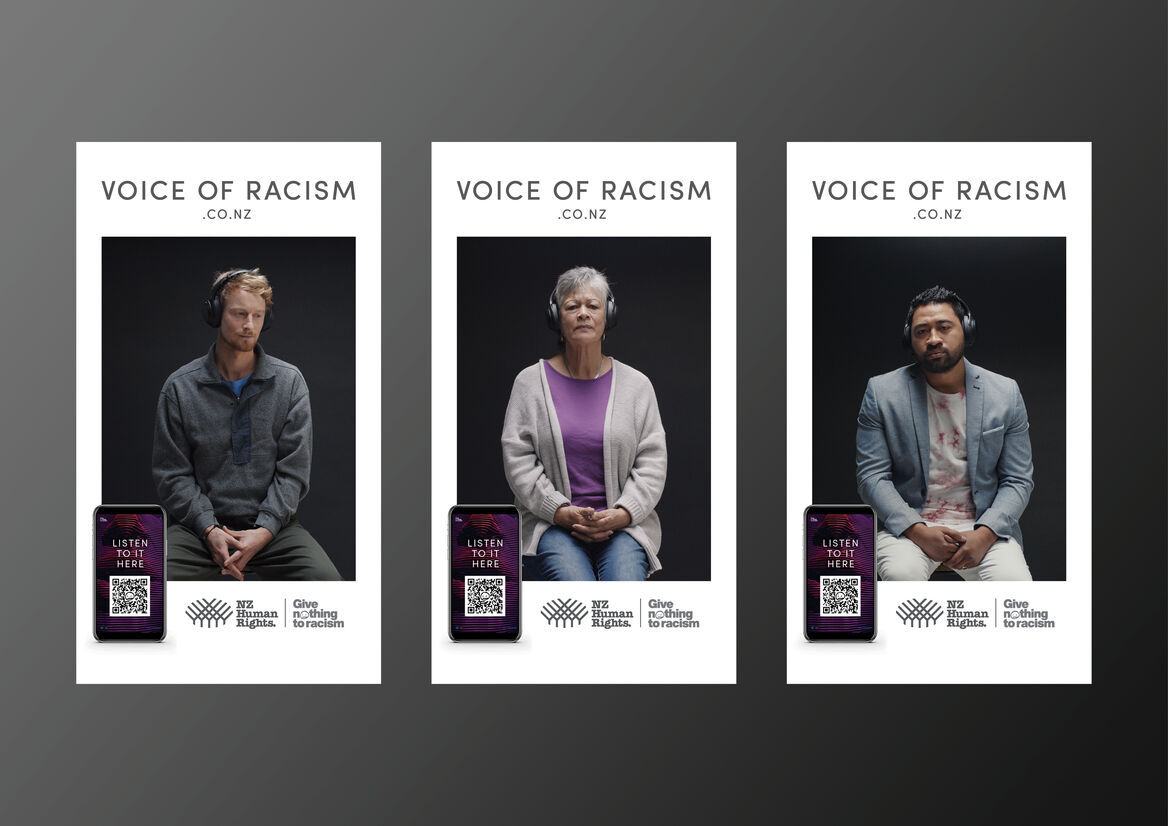
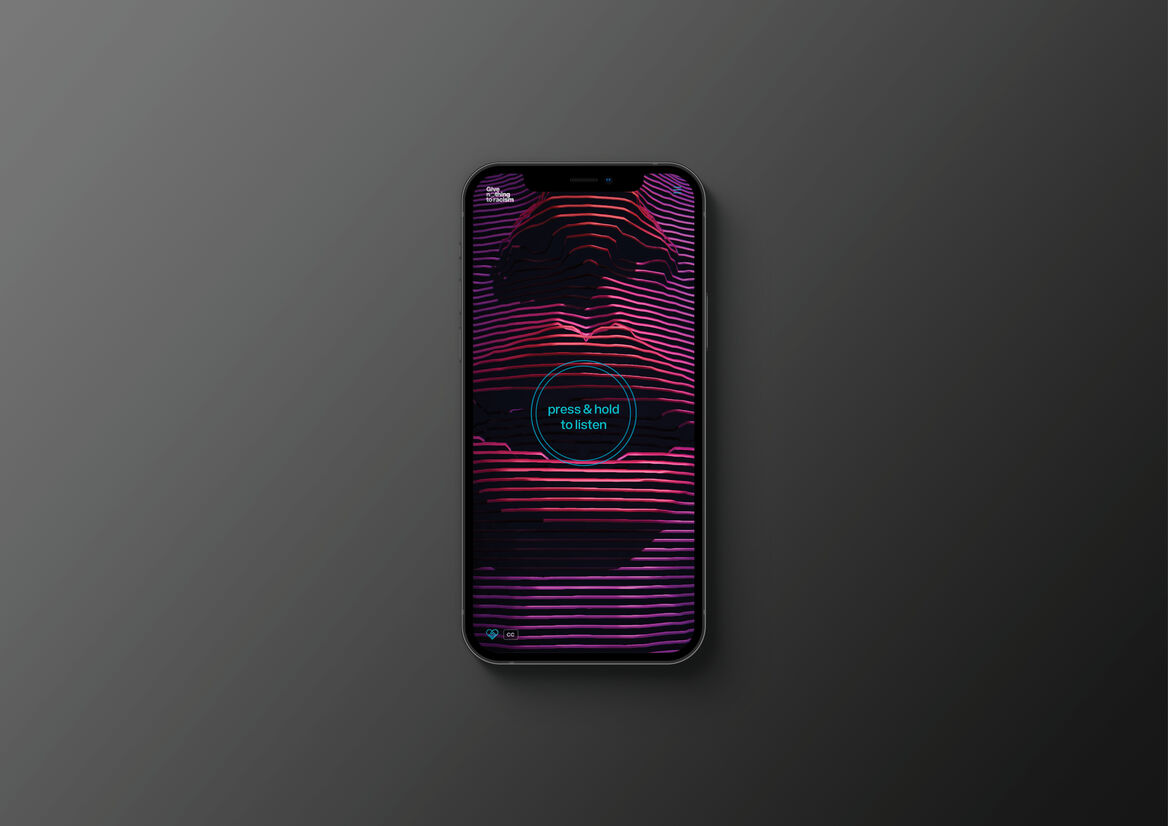
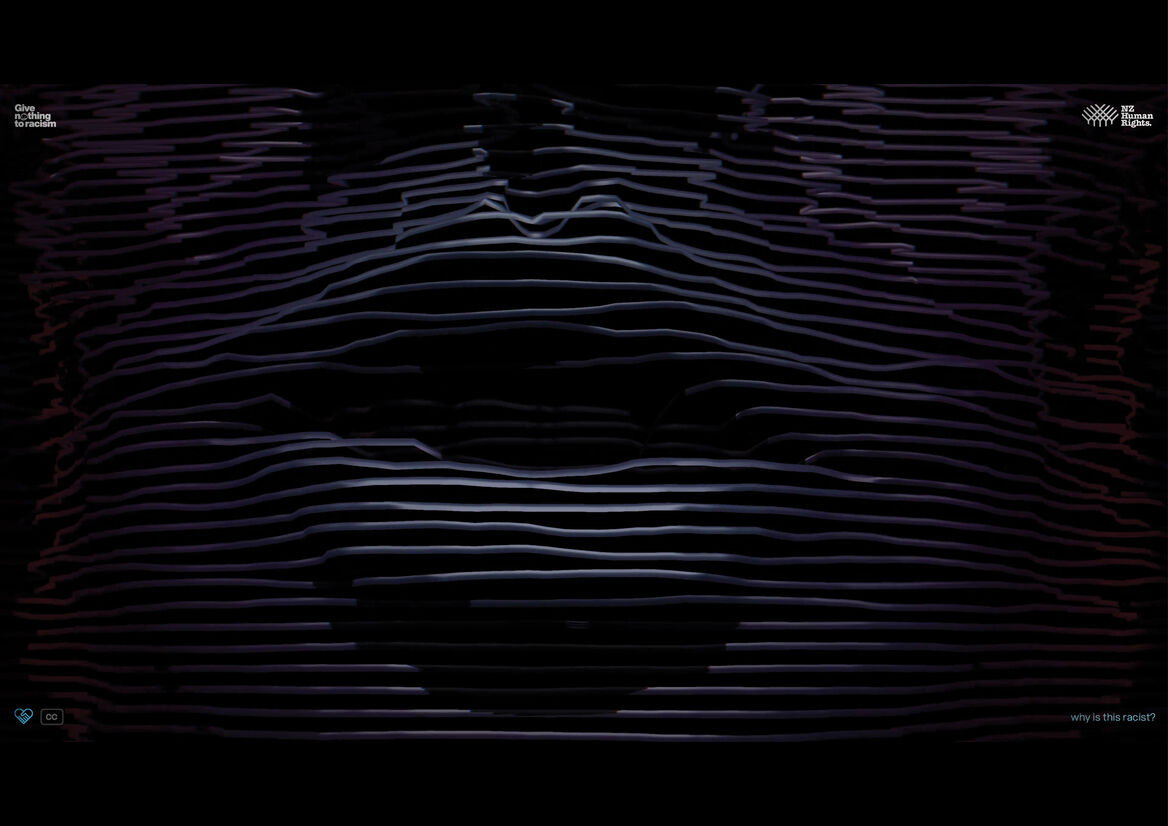
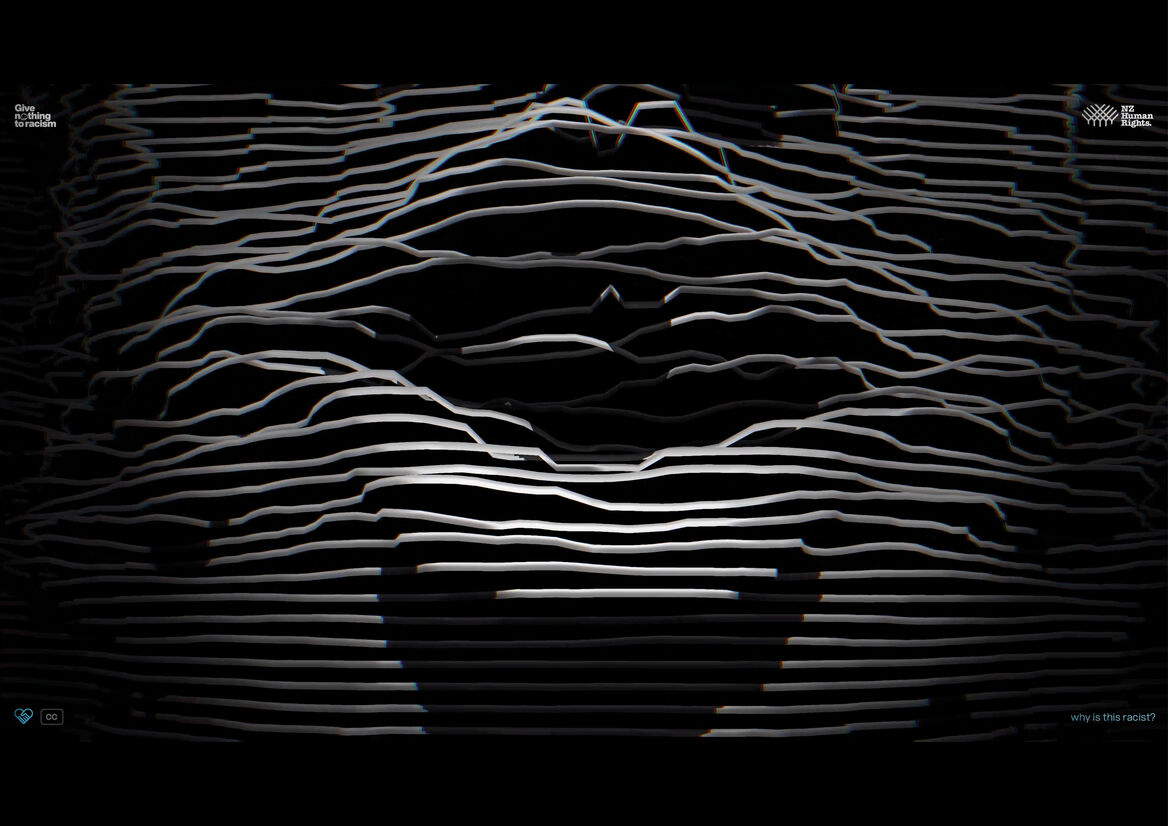
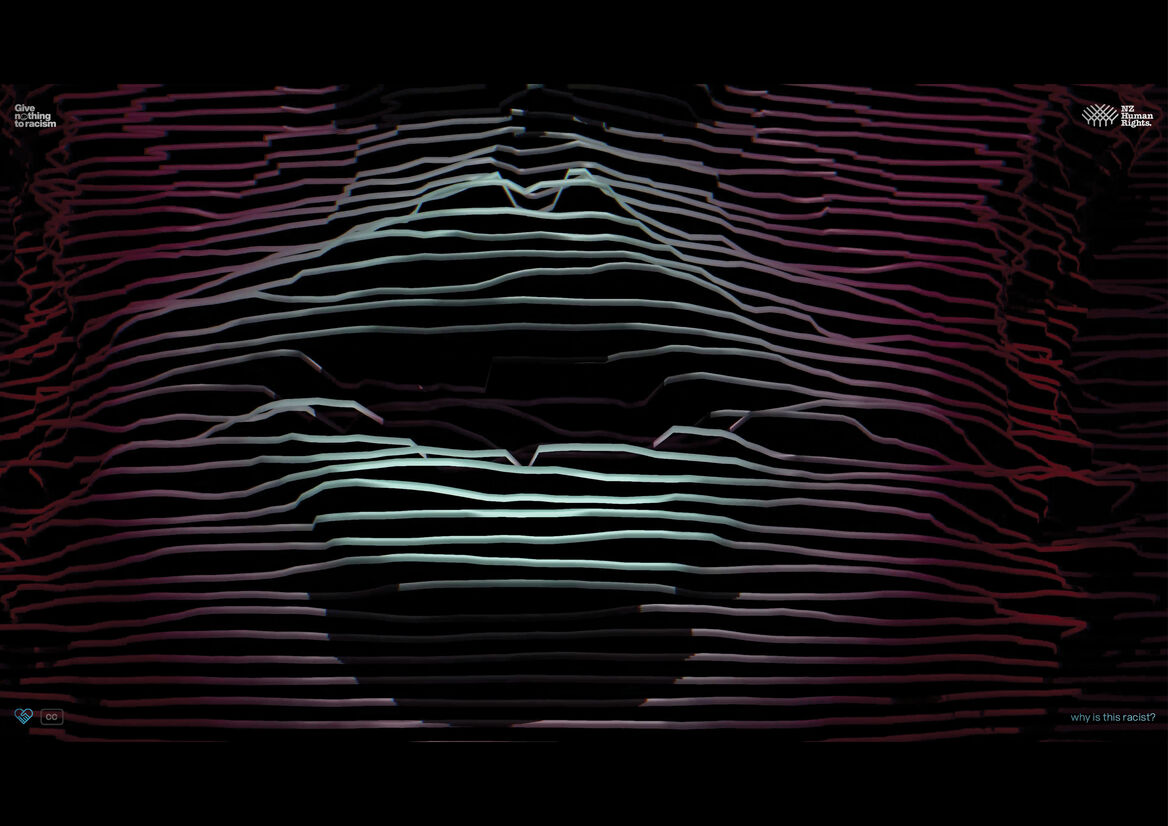
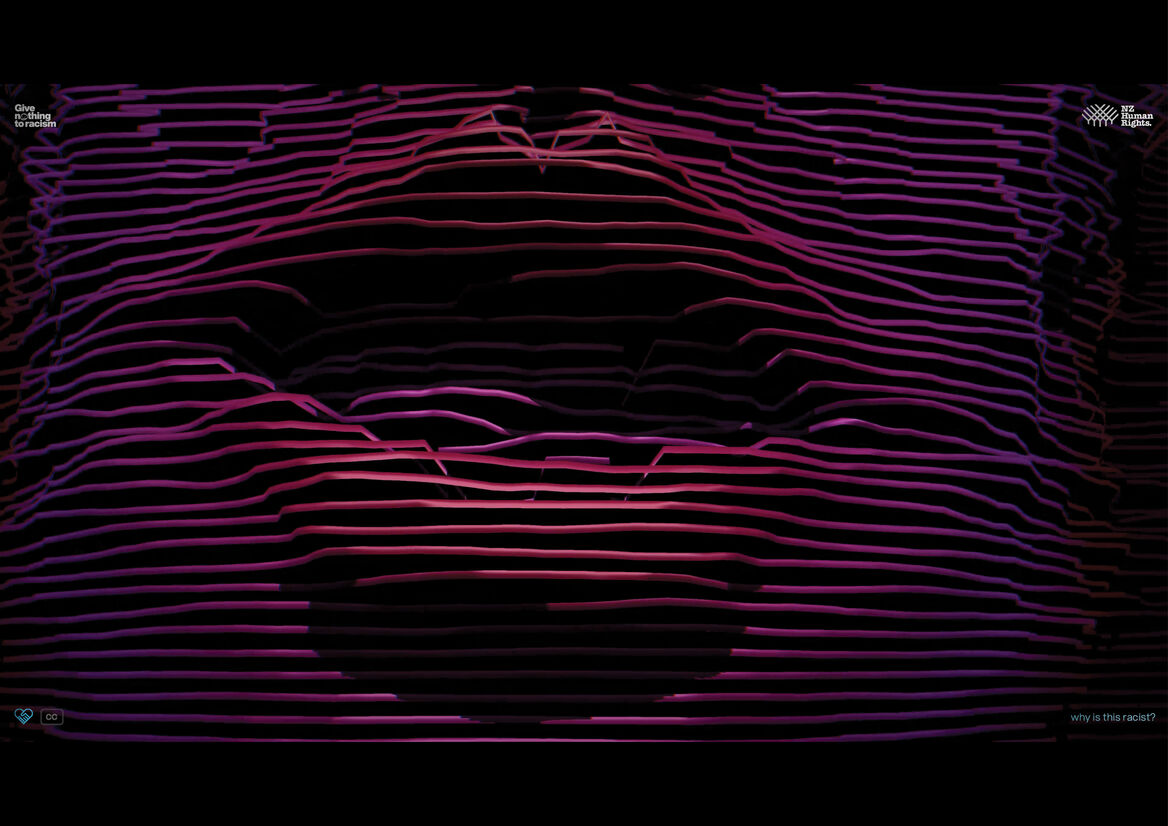
Description:
Opportunity
Most of us are more than willing to say we’re anti-racist. But how can we actively and successfully fight racism if we don’t know what it can sound like? We needed to expose the spectrum of racism that exists in New Zealand, to allow people to see how they were contributing to harm.
Approach
VoiceOfRacism.co.nz allows anyone to feel the burden of relentless racism. Thousands of real lived microaggressions were gathered from recipients, and each revoiced by Taika Waititi, facial-captured and individually rendered in Web GL. Binaural audio effects were applied to replicate the original context, and each microaggression was coded along several data points, eg intensity, then pulled from an algorithm. A non-descript character was designed to represent the voice, which reacted in real-time to the live audio, coming in and out of the darkness and varying in intensity. This gives each user a carefully crafted but completely unique, unpredictable and endless experience.
Outcomes
Voice of Racism is now used as a learning tool in government, sports, business, education and media. It is also housed in Te Whare Taonga o Waikato, becoming part of our national discussion on racism.
Context
Racism in New Zealand tends, overall, to be less ‘extreme’ than in many parts of the world, but our systemic, unintentional and ‘small’ racism is not only prevalent, but leading to unequal mental health outcomes and reduced life expectancy. The campaign was designed to show the harm of lots of ‘small’ moments of racism, particularly when lived along more overt and aggressive examples.
Judge's comments:
An exceptional and novel way to address racism. The use of design, interactivity and audio is innovative and powerful.